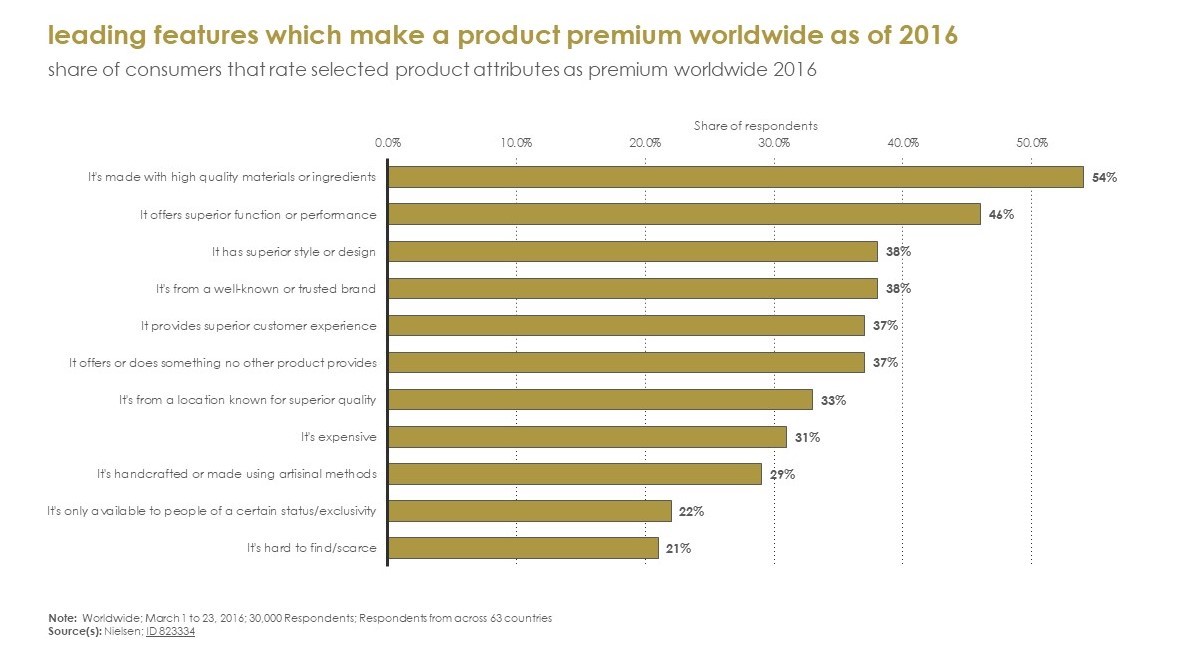Quality is a tangible asset that translates into an intangible feel.
I grew up in a middle-class Italian family in the 70s and recall our frugal outfits as a composition of tidy Egyptian cotton shirts with mother of pearl buttons, 'stitched' (not glued) shoes, terribly itching 'pure' wool pullovers and pleated skirts.
Good quality, modest in price; personal items that made us feel good.

Today, without romanticizing, it feels difficult to find the same quality, sometimes even at premium prices, in a range of sectors and services across industries
We probably all had the same experiences. Restaurants we loved at first and then abandoned few months after the opening because the quality of service and food weren’t consistent; brands changing their materials or workmanship.
Gregory Raiz, CEO & founder of RAIZLABS a customer experience agency, defines the phenomenon as "troth of product gravity. Companies seek to maximize their internal profitability, and as products become successful, it becomes harder to achieve year-over-year growth. Product teams get larger and as companies search for big wins, they start to homogenize the product vision and fragment their market, or worse, compromise the product quality to achieve gains. As companies grow, each action pulls the company and its products down into the troth."
What if customers progressively distanced themselves from some brands and establishments simply because of a perceived or real decrease of quality in their offerings?
Is a renewed research of quality the driving reason prompting customers to research smaller, craftier, more curated brands? According to McKinsey and BOF 'state of fashion report' successful small beauty companies have now a 10% share of the global cosmetic market first because “they offer high-quality, innovative products with stories that appeal to millennials."
Consumers have a good understanding of quality. They may make a compromise if the price is very low but would certainly not forget poorer product or services performances if they are paying a premium price.
With prices and cost of living rising, and a wider range of interests growing (read: self-improvement, travel, wellbeing, etc.) it may be necessary to re-consider quality proposition not only in ‘mature’ markets, but particularly in the ‘emerging’ ones -- where the demography and economic development are the pillars of future commercial expansion.
In fact, the clientele that shops, in the west, and in important markets such Japan, China, India and Africa have a rich and significant local heritage in manufacturing and service providing. Some countries have been production hubs for decades and are home to some of the most adventurous and discerning tourists.
Most importantly, customer from the biggest countries are rediscovering forgotten traditions and launching their own brands that go back to craft and quality or propose better price-quality propositions.
Just think about the exquisite level of quality and craftmanship of SABYASACHI who recently designed Priyanka Chopra’s wedding dress and jewelry, an exercise in real luxury; or the super curated hotel chains ascending from the east, ROSEWOOD and SIX SENSES; the accessible Thai brands such as POMELO fashion, bound to become a Zara of tomorrow.
People are making choices. The signal is strong and getting stronger.
Discounting clientele discernment could be a risky bet…particularly when identity and contents of the commercial proposition are weak, and the price is not affordable.
In short, quality matters. No matter what.